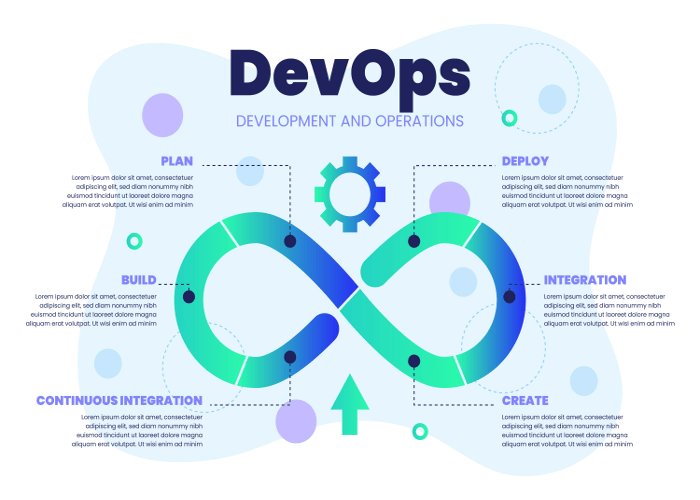Leverage Azure DevOps for Better Test Results

Introduction
Test automation, when combined with a robust DevOps platform like Azure DevOps, can elevate software testing to new heights, enabling teams to achieve more powerful results while streamlining their development processes. In this comprehensive guide, we’ll explore the benefits of leveraging Azure DevOps with test automation and how it can revolutionize your software testing efforts.
Understanding Azure DevOps and Test Automation
What is Azure DevOps?
Azure DevOps is Microsoft’s cloud-based platform that provides a comprehensive set of tools for collaboration, development, and DevOps automation. It offers a seamless environment for managing source code, planning and tracking work, automating builds and deployments, and facilitating continuous integration and delivery (CI/CD) pipelines. With its versatile range of services and integration capabilities, Azure DevOps empowers teams to efficiently manage the entire software development lifecycle from ideation to deployment.
What is Test Automation?
In today’s rapidly evolving technological landscape, delivering high-quality software products efficiently and effectively is crucial for businesses to stay competitive. Given the complexity of software systems and the demand for faster release cycles, manual testing is no longer sufficient to ensure the reliability and stability of applications. This is where test automation comes into play, offering the promise of faster execution, broader test coverage, and increased accuracy.
Test automation involves the use of software tools to execute test cases automatically. It compares actual outcomes with expected results. This enables teams to validate software functionality, performance, and reliability efficiently, reducing manual effort and accelerating the testing process.
The Benefits of Test Automation with Azure DevOps
Enhanced Collaboration
Azure DevOps fosters collaboration among development, testing, and operations teams by providing a unified platform for managing the entire software development lifecycle. With integrated test automation capabilities, teams can collaborate more effectively, share test assets, and coordinate testing efforts seamlessly. By breaking down silos and promoting cross-functional collaboration, Azure DevOps enables teams to deliver higher-quality software products faster.
Improved Test Coverage
Automated tests can cover a broader range of scenarios than manual testing alone, helping teams uncover defects and vulnerabilities that may be missed otherwise. With Azure DevOps, teams can easily create and manage automated test suites, ensuring comprehensive coverage across different aspects of the application. By leveraging the scalability and flexibility of Azure DevOps, teams can adapt their test coverage to evolving requirements and ensure robust software quality.
Consistent and Reliable Results
Manual testing is prone to human error and inconsistencies, leading to unreliable test results. Test automation with Azure DevOps ensures consistency in test execution and eliminates the risk of human-induced errors, resulting in more reliable and predictable outcomes. By establishing standardized testing processes and leveraging Azure DevOps’ automation capabilities, teams can consistently deliver high-quality software products that meet user expectations.
Cost Efficiency
While initial setup and configuration of test automation may require investment, the long-term benefits in terms of time savings and improved software quality outweigh the costs. Azure DevOps offers scalable and cost-effective solutions for test automation, allowing teams to maximize their return on investment. By optimizing resource utilization, reducing manual effort, and accelerating time to market, Azure DevOps enables teams to achieve greater cost efficiency throughout the software development lifecycle.
Faster Time to Market
By automating repetitive testing tasks, teams can significantly reduce the time required to validate software changes. Azure DevOps enables the seamless integration of automated tests into CI/CD pipelines, allowing for rapid feedback on code quality and enabling faster release cycles. With Azure DevOps, teams can streamline their release processes, minimize bottlenecks, and deliver new features and updates to users with greater speed and agility.
Leveraging Azure DevOps for Test Automation
Setting Up Test Automation Infrastructure
The first step in leveraging Azure DevOps for test automation is to set up the necessary infrastructure. Azure DevOps provides a range of services and tools for creating and managing automated test environments, including Azure Test Plans, Azure Test Automation, and Azure Virtual Machines. By leveraging Azure DevOps’ scalable and reliable infrastructure, teams can provision test environments quickly, automate deployment processes, and ensure consistent testing environments across different stages of the development lifecycle.
Creating Automated Test Cases
Once the infrastructure is in place, teams can begin creating automated test cases using their preferred testing frameworks and tools. Azure DevOps supports a variety of testing frameworks, including Selenium, Appium, NUnit, and MSTest, enabling teams to choose the tools that best suit their requirements. By leveraging Azure DevOps’ integration with popular testing frameworks, teams can streamline test case development, enhance test coverage, and improve overall testing efficiency.
Integrating Automated Tests into Pipelines
Azure DevOps allows teams to seamlessly integrate automated tests into their CI/CD pipelines, enabling continuous testing throughout the development process. By triggering automated tests automatically with each code change, teams can detect defects early and ensure that software quality standards are met consistently. With Azure DevOps’ built-in support for CI/CD workflows, teams can automate the execution of tests, generate actionable insights, and accelerate the delivery of high-quality software products.
Analyzing Test Results and Metrics
Azure DevOps provides comprehensive reporting and analytics capabilities, allowing teams to analyze test results, identify trends, and track key metrics such as test coverage and defect density. By leveraging these insights, teams can continuously improve their testing practices and optimize their test automation efforts. With Azure DevOps’ rich set of analytics tools and customizable dashboards, teams can gain visibility into their testing processes, identify areas for improvement, and make data-driven decisions to enhance software quality.
Best Practices for Test Automation with Azure DevOps
Start Small and Iterate
Begin with a small set of critical test cases and gradually expand test coverage over time. Continuously evaluate and refine your automated tests based on feedback and evolving requirements. By starting small and iterating, teams can mitigate risks, validate assumptions, and gradually build a robust test automation strategy that aligns with their organizational goals.
Maintain Test Suites Regularly
Consistently evaluate and refresh your automated test suites to maintain their relevance and effectiveness. Remove obsolete tests, refactor redundant code, and incorporate new test cases as needed to adapt to changes in the application. By maintaining test suites regularly, teams can keep pace with evolving requirements, improve test coverage, and enhance the reliability of their automated tests.
Collaborate Across Teams
Promote collaboration between development, testing, and operations teams to ensure alignment on testing objectives and priorities. Foster a culture of shared ownership and accountability for quality throughout the organization. By collaborating across teams, sharing knowledge, and leveraging diverse perspectives, teams can enhance communication, streamline processes, and deliver high-quality software products more efficiently.
Leverage Azure DevOps Ecosystem
Take advantage of the rich ecosystem of extensions and integrations available in Azure DevOps to enhance your test automation capabilities. Explore third-party tools and services that complement Azure DevOps and address specific testing challenges. By leveraging the extensibility of Azure DevOps, integrating with external tools, and leveraging community contributions, teams can tailor their test automation solutions to their unique requirements and achieve greater efficiency and effectiveness.
Conclusion
Test automation, when integrated with Azure DevOps, offers a powerful solution for enhancing software testing effectiveness, efficiency, and reliability. By leveraging the seamless integration, comprehensive tooling, and robust infrastructure provided by Azure DevOps, teams can streamline their testing processes, accelerate time to market, and deliver higher-quality software products that meet the demands of today’s digital economy. Embrace the power of Azure DevOps with test automation and revolutionize your software testing efforts for unparalleled success.


🗨️ Reader Comments